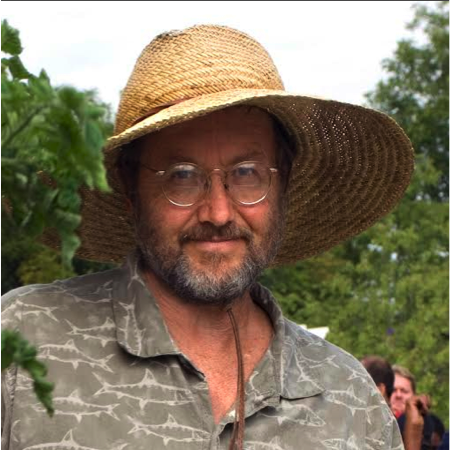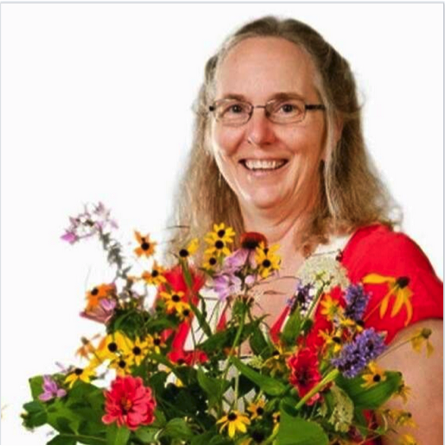Preface
Across North Carolina, community gardens are making a positive difference by strengthening neighborhoods, increasing food security, and giving thousands of people a place to grow a food garden of their own.
Behind every successful community garden are people just like you. We dedicate this publication to you and your fellow community gardeners, NC State Extension Master GardenerSM volunteers, and to the sponsors, supporters, public agencies, faith communities, and other organizations that help turn community garden dreams into green and growing realities.
Many excellent documents and websites already explain the benefits of community gardening. The writers of this guide, both experienced community gardeners, highly recommend exploring them.
We hope to address a different objective by emphasizing practical information you can use to help make your community garden a success, whether you are a beginner starting your first garden or a veteran community gardener looking for ways to make your garden even better.
This publication is not an academic study, although we did our homework. We purposely focus on specific, practical, and applicable suggestions. We hope this guidebook will equip you with tested tools and techniques you can adapt to create successful solutions to match your own community garden's needs.
We owe a great deal to community garden organizers across the country who inspired and taught us over the years. We want to thank two grassroots organizations, The North Carolina Community Garden Partners (NCCGP) and The American Community Gardening Association (ACGA). They each have valuable resources and networks, and we urge you to join both.
Best of luck in your community gardens!
Don Boekelheide
Community Gardener
Reedy Creek Park Community Garden, Charlotte
Dr. Lucy K. Bradley
Extension Specialist, Urban Horticulture, and Associate Professor
NC State University
Additional Resources
North Carolina Resources
The NC State Extension Community Gardening Portal
Collard Greens and Common Ground: A North Carolina Community Food Gardening Handbook, AG-806
The North Carolina Extension Gardener Handbook, AG-831
The NC State Extension Gardening Portal
North Carolina Community Garden Partners
National Start-Up and Management Guide Websites
Australia—Australian City Farms and Community Gardens Network
Canada—Community Garden Council of Waterloo Region, Ontario, Canada
United States of America—American Community Gardening Association
State and Local Start-Up and Management Guide Websites
California—ChangeLab Solutions: Land use Policies, A Legal Toolkit and more; University of California Cooperative Extension Los Angeles County
Colorado—Denver Urban Gardens, Denver, CO
Kansas—Community Toolbox, University of Kansas
Massachusetts—Boston Community Gardens, Boston, MA
Minnesota—Gardening Matters, Minneapolis, MN
Missouri—Community Gardening Toolkit, University of Missouri Extension; Gateway Greening, St. Louis, MO
New York—NE Beginning Farmers Project, Cornell University
Oregon—Parks & Recreation, Portland, OR
Utah—Wasatch Community Gardens, Salt Lake City, UT
Vermont—Vermont Community Garden Network, Burlington, VT
Washington—P-Patch Program, Seattle, WA
Resources in Spanish
Farm and Garden Resources—Center for Rural Affairs, Lyons, NE
Garden Resources, LifeLab
Garden Start-Up Guide, University of California
Cooperative Extension Los Angeles County
List complied by Betsy Johnson, The American Community Gardening Association
References
Abi-Nader, J., K. Dunnigan and K. Markley. 2001. Growing Communities Curriculum: Community Building and Organizational Development through Community Gardening. Columbus, OH: American Community Gardening Association.
Alaimo, K., E. Packnett, R. A. Miles and D. J. Kruger. 2008. Fruit and Vegetable Intake among Urban Community Gardeners. Journal of Nutrition Education and Behavior 40 (2): 94–101.
Armstrong, D. 2000. A Survey of Community Gardens in Upstate New York: Implications for Health Promotion and Community Development. Health & Place 6: 319–327.
Bartholomew, M. 1981. Square Foot Gardening: A New Way to Garden in Less Space With Less Work. Emmaus, PA: Rodale Press.
Bradley, L. K., C. Gunter, J. T. Sherk, and E. A. Driscoll. 2016. Central North Carolina Planting Calendar for Annual Vegetables, Fruits, and Herbs. AG-756-01. Raleigh, NC: NC State Extension.
Bradley, L. K., C. Gunter, J. T. Sherk, and E. A. Driscoll. 2016. Eastern North Carolina Planting Calendar for Annual Vegetables, Fruits, and Herbs. AG-756-02. Raleigh, NC: NC State Extension.
Bradley, L. K., C. Gunter, J. T. Sherk, and E. A. Driscoll. 2016. Western North Carolina Planting Calendar for Annual Vegetables, Fruits, and Herbs. AG-756-03. Raleigh, NC: NC State Extension.
Chaifetz, A., L. Driscoll, C. Gunter, D. Ducharme, and B. Chapman. 2012. Food Safety for School & Community Gardens: A Handbook for Beginning & Veteran Garden Organizers: How to Reduce Food Safety Risks. Raleigh, NC: N.C. Cooperative Extension.
Coleman, Elliot. 1995. The New Organic Grower. White River Junction, VT: Chelsea Green.
Crozier, C., M. Polizzotto and L. Bradley. 2012. SoilFacts: Minimizing Risks of Soil Contaminants in Urban Gardens. AGW-439-78. Raleigh, NC: N.C. Cooperative Extension.
Dawling, Pam. 2013. Sustainable Market Farming. Gabriola Island, BC, Canada: New Society.
Flint, J. 2005. Patchwork Stories of Gardens and Community. South Burlington, VT: Community Works Press.
Gooseman, G. 2005. Money for Community Gardens. American Community Gardening Association Community Gardening Review. Columbus, OH. 118–124.
Gunter, C. 2016. Vegetable Gardening. In K.A. Moore and L. K. Bradley (eds). North Carolina Extension Gardener Handbook. AG-831. Raleigh, NC: NC State Extension.
Hemenway, T. 2009. Gaia’s Garden. White River Junction, VT: Chelsea Green Publishing.
Holmgren, D. 2002. Permaculture: Principles and Pathways Beyond Sustainability. Victoria Australia: Holmgren Design Services.
Jeavons, J. 2006. How to Grow More Vegetables, Fruits, Nuts, Berries, Grains, and Other Crops than You Ever Thought Possible on Less Land than You can Imagine. New York, NY: Ten Speed Press,
Jones, D. and D. Roos. 2007. Planting and Harvesting Guide for Piedmont Vegetables and Herbs. Raleigh, NC: N.C. Cooperative Extension.
Kaner, S. 2014. Facilitator’s Guide to Participatory Decision-Making. San Francisco, CA: Jossey-Bass
Kirby, E and E. Peters. 2008. Community Gardening (Brooklyn Botanic Garden All-Region Guide). New York, NY: Brooklyn Botanic Garden, Inc.
Lanza, P. 1998. Lasagna Gardening: A New Layering System for Bountiful Gardens: No Digging, No Tilling, No Weeding, No Kidding. Emmaus, PA: Rodale Press.
Mollison, B. and and D. Holmgren. 1978. Permaculture One. Tasmania, Australia: Tangari Publications.
Nettle, C. 2009. Growing Community: Starting and Nurturing Community Gardens. Adelaide, Australia: Health SA, Government of South Australia and Community and Neighbourhood Houses and Centres Association Inc.
Ober, A. J., K. Alaimo, D. Elam; and E. Perry. 2008. Growing Vegetables and Values: Benefits of Neighborhood-Based Community Gardens for Youth Development and Nutrition. Journal of Hunger & Environmental Nutrition 3 (4): 418–439. Accessed August 20, 2009.
Payne, K., D. Fryman, and D. Boekelheide. 2001. Cultivating Community: Principles and Practices for Community Gardening as a Community-Building Tool. Baltimore, MD: Annie E. Casey Foundation; Columbus, OH: The American Community Gardening Association.
Pfeiffer, E. 1938. Practical Guide to the Use of Bio-Dynamic Preparations. London: Rudolf Steiner Publishing Company.
Steiner, R. 1928. The New Art of Education. London: Anthroposophical Publishing Company.
Steiner, R., M. Gardner, and C. E. Creeger. 1993. Agriculture: A Course of Lectures Held at Koberwitz, Silesia, June 7 to June 16, 1924. Bio-Dynamic Farming and Gardening. Milwaukee, WI.
Stout, R. and R. Clemence. 1971. The Ruth Stout No-Work Garden Book: Secrets of the Famous Year-Round Mulch Method. Emmaus, PA: Rodale Press.
Wakefield, S, F. Yeudall, C. Taron, J. Reynolds, and A. Skinner. 2007. Growing Urban Health: Community Gardening in South-East Toronto. Health Promotion International 22 (2):92–101. Oxford University Press.
About the Authors
Don Boekelheide organized Charlotte’s Reedy Creek Park Community Garden in 2004 to 2005, where he is still an active gardener. Sponsored by Mecklenburg County Parks and Recreation, with 76 plots covering over an acre, it is now the region’s largest community garden. Don served as Garden Director for Charlotte’s Urban Ministry Center for the Homeless. He also created Mecklenburg County’s Home Composting training and Master Composter Programs. A member of North Carolina Community Garden Partners (NCCGP), where he serves on the Board, and the American Community Gardening Association (ACGA), Don is a lead trainer for ACGA’s Growing Community workshops. A long-time journalist, he was editor of 25 Years of Community Gardening for ACGA and now edits The Garden Beet newsletter for NCCGP. He teaches popular vegetable gardening classes for Central Piedmont Community College. A returned Peace Corps Agriculture Volunteer (Togo), he holds an MS in Agriculture from Cal Poly San Luis Obispo. Don leads a second life as a musician and plays pipe and tabor for Queens Capers Morris. He lives with his family in Charlotte.
Lucy K. Bradley works for the NC State University Department of Horticultural Science as the urban horticulture specialist, where she directs consumer horticulture, community gardening, therapeutic horticulture, and the NC State Extension Master GardenerSM program. She co-edited the award-winning North Carolina Extension Gardener Handbook and appeared as a regular panelist on the UNC-TV Almanac Gardener television show. Dr. Bradley served two terms on the board of the American Community Gardening Association and is a founding partner of the North Carolina Community Garden Partners. With a master’s degree in Botany and a Ph.D. in Plant Biology, Dr. Bradley has become an urban pioneer nurturing an edible landscape of fruit and nut trees, berries and vegetables in her Raleigh front yard, and bees and chickens, berries and vegetables in the back.
Acknowledgements
The authors wish to express their appreciation to Keith Baldwin, Judith Bates, Diane Beth, Mary Jac Brennan, Susan Burns, Kim Curlee, Jim Flint, Nadine Ford, Deborah Green, Maria Hitt, Debra Ireland, Susan Jakes, Betsy Johnson, Ellen Kirby, Issac Lewis, Kathleen Moore, Karen Neill, Lisa Valdivia, Joni Young-Torres, and all of our fellow community gardeners at Reedy Creek Park Community Garden, The Urban Ministry Center Community Garden, the UNC Charlotte Student Community Garden, as well as the NC Community Garden Partners and NC State Extension Master GardenerSM volunteers.
Publication date: Aug. 10, 2017
Reviewed/Revised: May 30, 2023
AG-806
N.C. Cooperative Extension prohibits discrimination and harassment regardless of age, color, disability, family and marital status, gender identity, national origin, political beliefs, race, religion, sex (including pregnancy), sexual orientation and veteran status.


